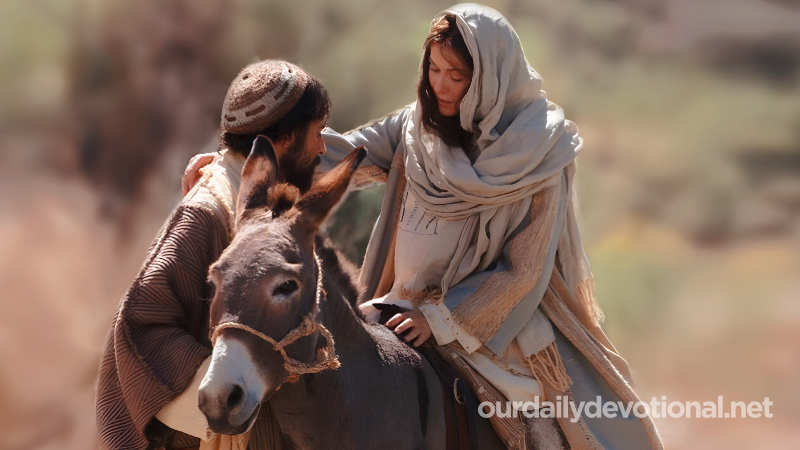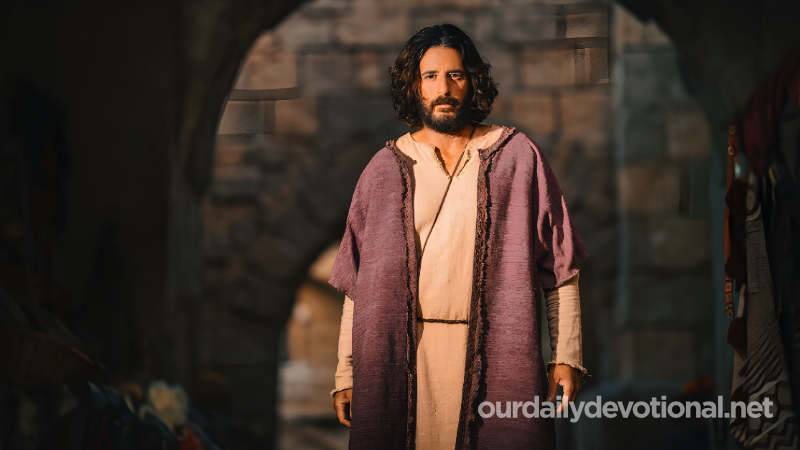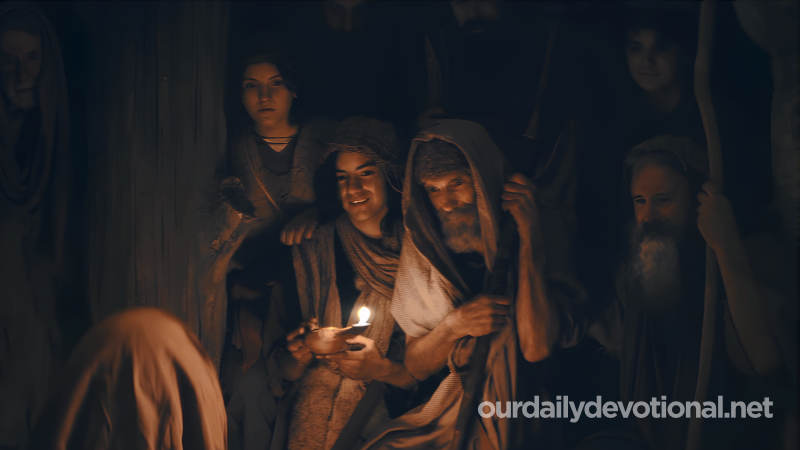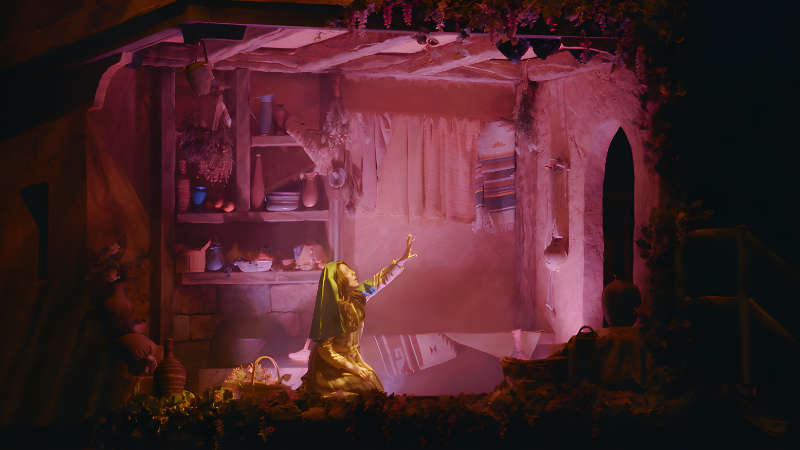(a) Old Testament:
In the Old Testament, a magistrate, both civil and religious, who, as far as we can know, was appointed by virtue of his right of age, at the head of a patriarchal house, of a family of the tribe, or of the same tribe (1 Kings 8:1-3; Judges 8:14,16).
By having the position of head of a tribe or of the largest families, the elder had the authority of a prince. Ordinarily, only men of mature age accessed these functions.
Other peoples, such as the Midianites and Moabites (Num. 22:4, 7), organized into tribes, had elders. This title generally designates high officials (Gen. 50:7) who: Ruled the people (Deut. 27:1; Ezra 10:8); they represented the nation in transactions involving it (Ex. 3:18; Judges 11:5-11; 1 Sam. 8:4); when a guest had to be honored (Ex. 18:12); celebrate an alliance (2 Sam. 5:3), or celebrate religious acts (Lev. 4:13-15; Josh. 7:6).
A body of 70 elders helped Moses govern the Israelites (Num. 11:16-24). Each city had its elders, who were probably the heads of the local families, and who exercised civil and religious authority (Deut. 19:12; 21:2; Rt. 4:2-11; 1 Sam. 11: 3; Ezra 10:14).
The elders continued to perform these functions in Judea during the Roman occupation (Matt. 15:2; 21:23; 26:3, 47). (See SYNAGOGUE and SANHEDRIN)
(b) New Testament:
In the New Testament the terms "elder" and "episcopos" (meaning overseer or bishop) were interchangeable (cf. Acts 20:17, 28; Tit. 1:5, 7), but they were not completely synonymous.
The term "elder" (presbyter) denotes the dignity of his function, while "episcope" denotes those duties that he exercised. The distinction that establishes two categories of ministry (that of elder and that of bishop) dates back to the second century.
In the year 44 AD. We already find elders in the church in Jerusalem (Acts 11:30). During his first missionary journey, Paul appointed elders in each church (Acts 14:23).
In fact, the elders in the churches of the Gentiles, as far as the NT shows us, were always appointed by the irreplaceable apostolic authority, whether exercised personally, or expressly delegated to certain people (cp. 1 Tim. 3: 1-15; Tit. 1:5).
The instructions for its official establishment are given to us in epistles addressed to apostolic collaborators, in the so-called Pastoral Epistles.
They also fulfilled their functions in the communities of Christians of Jewish origin (James 5:14; 1 Pet. 5:1). It is evident that the dignity of an elder in the Christian church corresponded to that of an elder among the Jews.
Both positions were vested with the same authority. The elders were associated with the apostles in the government of the Church (Acts 15:2, 4, 6, 22, 23; 16:4; cp. Acts 21:18). They were the bishops or overseers of the local churches (Acts 20:17, 28; Tit. 1:5), and their function was to take care of the spiritual state of the congregation, exercising discipline, teaching (1 Tim. 3:5; 5:17; Tit. 1:9; Jas. 5:14; 1 Pet. 5:1-4; cp. Heb. 13:17). There were several bishops or overseers in the local church (Phil. 1:1), also called elders (Acts 11:30).
No allusion is made to a distinction of functions between them. Within the Christian church of apostolic times, as in the synagogue, preaching was not an essential function of the elders; It was not exclusively reserved for them.
As shepherds of the flock, the elders were to instruct well and be qualified to teach (1 Tim. 3:2; Tit. 1:9). But anyone who possessed the gift of prophecy or teaching had the right to give exhortations (1 Cor. 12:28-30; 14:24, 31).
In relation to this it is important to note the distinction between "gift" and "position." The first comes directly from the Lord; the second, by the exercise of human authority.
The gift therefore did not require human authority to be exercised, and was exercised in immediate subjection to the Head. The authority of the elders, as offices, derived from their official establishment by the apostles, and had its sphere within the undivided local assembly. Nothing is said in the Scriptures about a succession.
(c) The elders in heaven:
The twenty-four elders seen by John in heaven are mentioned frequently in Revelation. They are seen around the throne, sitting on thrones, dressed in white and wearing crowns of gold, worshiping God (Rev. 4:4, 10).
In the OT, when everything was in order there were twenty-four priestly groups, each of these groups having an elder as its head or leader (1 Chron. 24:7-18); It may be that the number twenty-four for the elders in Revelation is an allusion to these twenty-four types of priesthood.
The elders in heaven have golden harps filled with perfume “which are the prayers of the saints,” evidencing that they act as priests (Rev. 5:8), celebrating redemption in a song (Rev. 5:9).
It is undoubtedly the Church seen already in heaven in its character as a "royal priesthood" (cp. 1 Pet. 2:9). (See BISHOP and PASTOR)
A title of God used by Daniel, alluding to his eternity. He cannot be separated from Christ, because in Dan.
7 The Lord receives both names, the Ancient of Days and the Son of Man, and yet the Son of Man appears before the Ancient of Days to receive dominion, glory, and the kingdom (Dan. 7:9, 13 , 22). He is both God and man (cf. Rev. 1 and Rev. 5).
Meaning of ELDER
(a) Old Testament:
In the Old Testament, a magistrate, both civil and religious, who, as far as we can know, was appointed by virtue of his right of age, at the head of a patriarchal house, of a family of the tribe, or of the same tribe (1 Kings 8:1-3; Judges 8:14,16).







